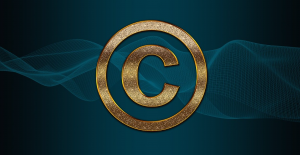Social media has undoubtedly created many benefits, amongst which are the great strides in daily communication and commerce. However, they can be maintained only if the integrity and intended purposes of these platforms are still maintained.
It goes without saying that the age of technology has influenced the way we communicate and relate with each other, largely due to social media platforms. And leading the chart are Facebook, Instagram, Twitter, Snapchat, and Tiktok, just to mention a few. Having said that, it stands to reason that if the primary goal of these sites is to allow communication, then people will naturally express themselves in both negative and positive light as they gravitate towards these platforms. Ergo, it’s not surprising that new social vices such as online bullying, defamation of character, and online stalking have surfaced. For obvious reasons, people should face the law if caught exhibiting these unhealthy behaviors.
But there are also varying characteristics that would constitute as mild but are being subjected to scrutiny or even legal ramifications in recent times. To that end, we’ll look at five legal issues ranging from extreme to mild that you might not even be aware of, but which could get you in serious trouble, especially if you operate an online business. These include:
- Copyright Infringement
- Defamation
- Formatting of Sponsorship Posts
- Fake Testimonials
- Paying attention to terms and conditions on social media platforms
Copyright Infringement
Thanks to the rise in user-generated content, it’s impossible to talk about legal issues related to digital content without mentioning copyright infringement. Before recently, social media platforms had been spared from copyright-related liabilities under section 512 of the Digital Millennial Act, granted that they had mechanisms in place to remove copyrighted materials in the event that the owner of the content asked for it to be taken down. Another condition was that the online platform in question never benefited financially from any copyrighted material. This didn’t stop the likes of Youtube and Facebook from getting sued for copyright infringement on a regular basis; however, they got away with it every time without paying damages.

But that’s about to change thanks to the controversial article 13 of the EU directive, also known as the “meme ban”. Unlike before, user-generated platforms like Youtube, Twitter, and the likes will be legally liable for any copyrighted material it holds. And while this comes as good news to the entertainment industry, it could mean the demise of small and medium-sized content creators.
But more to the point of how this affects you. In short, following the enforcement of this law, social media platforms will have no option but to enforce stricter regulations and filters regarding content upload in order to avoid lawsuits. Even now, the Youtube algorithm has been known to make mistakes and take down pieces of content that do not infringe on any policy or directive. Ergo, a stricter version of the Youtube algorithm will probably become a nightmare scenario for any creative. On the other hand, creatives will have to steer towards the making of original content that could be either good or bad, depending on who you are asking. It’s either that or you run at the risk of facing a lawsuit yourself. Therefore, many use the image from free photo stocks licensed under Creative Commons. “But even in this case, it is better to indicate the link and copyrights to this image”, says CEO at Photza retouching studio.
Defamation
It’s one thing smearing a colleague or a business rival behind closed doors with unfounded rumors, but it’s another to do it on social media platforms. That’s because the effect will be in the hundred folds which could potentially cause havoc for the one on the receiving end. This is arguably a form of exercising one’s freedom of speech; however, if such actions were to be encouraged, most businesses would have been in tatters before they even began. That’s why the legal ramifications of defamation are essential to online conduct.
In light of this, you could end up on the wrong side of the law for making unfounded accusations online against anyone or a business, although that hasn’t deterred people before given that we see it every day, especially on Twitter. But, mind you, all it takes is a defamation complaint.
Formatting of Sponsorship Posts
This is probably one of the newest legal issues in social media and it comes in the wake of the FTC’s (Federal Trade Commission) crackdown on online influencers. Gone are the days where the majority of people trusted real experts to inform their choices on life-changing decisions. Today, people put excessive and unhealthy levels of trust in online influencers whom they’ve taken a liking to for one reason or the other. That’s to say, influencers have a great degree of sway over the choices made by the everyday ordinary people; particularly in the case of those influencers with millions of followers.
Unfortunately, not all influencers are in the habit of telling the truth about their posts, as many have been found to mislead their followers with sponsored information that could spell disaster to someone. Ergo, it’s only judicious to hold people of influence to certain standards and expect them to point out whenever they make sponsored posts through the use of hashtags or other means. That being said, the FTC has also pointed out that sometimes, hashtags aren’t enough, especially when using words or phrases that could be misinterpreted. Therefore, you should make an effort to avoid such mistakes as an aspiring influencer or an already acclaimed one, lest you find yourself accountable to the FTC.
Fake Testimonials
Testimonials are an excellent way to build trust between brands and consumers. And, as per the meaning of the term, “testimonial”, it’s supposed to be a third person’s account of their experience using the services provided by a brand. So imagine the surprise when a company is found to have falsified its testimonials. Not only is it unethical, but it’s also misleading and if not quelled at its infancy may lead to dire consequences. So it’s not surprising that brands found to have falsified testimonials are usually ordered to pay anything between $50,000 and $100,000.
Paying attention to terms and conditions on social media platforms
We are all guilty of not paying attention to the terms and conditions whenever signing up on a new platform, but it’s high time that changed, given the drastically changing rules of the use of online platforms. For instance, a platform may stipulate in its terms and conditions that whatever content you may upload on its platform may be subject to a reshare, which is even a readily accessible feature on many social platforms. Therefore, such a platform will not be liable in case you change your mind about a post that’s gone viral due to its sensational nature.
Social media has undoubtedly created many benefits, amongst which are the great strides in daily communication and commerce. That being said, advantages can only be maintained for so long if the integrity and intended purposes of these platforms are still maintained. Hence, the best way to sustain that is to get educated on these legal issues and play by the rules.


Join the conversation!